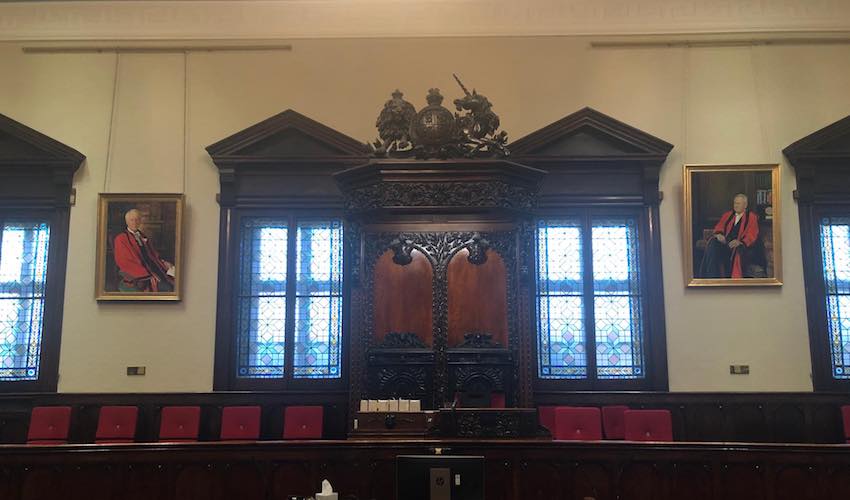
A convict, who still denies sexually assaulting a child around 50 years ago, despite serving three years in jail for the offences, has been removed from the Sex Offenders' Register.
The man's successful application came after the Royal Court concluded that continuing to impose notification requirements on the man was “no longer justified or proportionate."
Referred to as 'W' in an anonymised judgment, the offender had been on the register since 2014, following a conviction for offences of indecent assault and procuring acts of gross indecency on a child aged six to seven.
At the time, he was sentenced to three years in prison, and the Royal Court ordered that five years should elapse before he could apply to have his name removed from the register. No restraining orders were imposed.

Pictured: Anyone can apply to the Court to be removed from the register once they have reached the minimum term.
Under the Sex Offenders' Law, anyone who has reached the minimum term set by the courts, may make an application for removal from notification requirements, by writing to the relevant court.
Agencies, including the Probation Service, are then required to provide an updated court report or risk assessment for the court to decide whether the individual is eligible for removal.
Represented by Advocate Sarah Dale, ‘W’ applied to be removed from the register earlier this month. His application was heard by Royal Court Commissioner Julian Clyde-Smith, and Jurats Rozanne Thomas and Kim Averty.
The Court noted that the offences had taken place 46 years ago and that the man had not committed any other offences during that period apart from minor driving ones.
They also noted that, although ‘W’ continues to deny this offending, there had been no “concerns over his behaviour whilst in custody and on release he returned to live with his wife”.
“Despite his age he works part time and as a couple they are self-funding,” they added.

Pictured: The Court said W's behaviour in prison hadn't raised any concerns.
The man was assessed by the Probation Service which concluded he was at a low risk of sexual reoffending. The Probation Officer was uncertain whether continued low-level monitoring by the Offenders Management Unit would be of significant benefit in reducing the likelihood of W reoffending or enhancing public protection.
The Attorney General didn’t oppose the application.
The Court eventually concluded the notification requirements were “no longer justified or proportionate” and granted the application.
Last month, the Court refused to grant a similar application submitted by a man who had been sentenced for downloading or attempting to download indecent photographs of children.
The man, an untreated sex offender, claimed he had been looking at images to identify victims of abuse and denied two earlier convictions for sexual offences, both of which had resulted in short prison sentences.
Drawing the judgment to a conclusion, the Court wrote: “In our view the risk of further sexual offending cannot be discounted to the extent that the notification requirements are no longer justified. We therefore refuse the application and... we order that a further two years must expire before a further application can be made to lift the notification requirements.”
According to figures released in March following a request under the Freedom of Information Law - the most recent that are publicly available - there were 148 locally registered sex offenders as of February. 85 of those were in the community and managed by the Police Offender Management Unit.
Between 2016 and February 2019, there were 17 applications for removal from notification, 15 of which were successful. None of the offenders removed from the register were known to have re-offended.
Comments
Comments on this story express the views of the commentator only, not Bailiwick Publishing. We are unable to guarantee the accuracy of any of those comments.